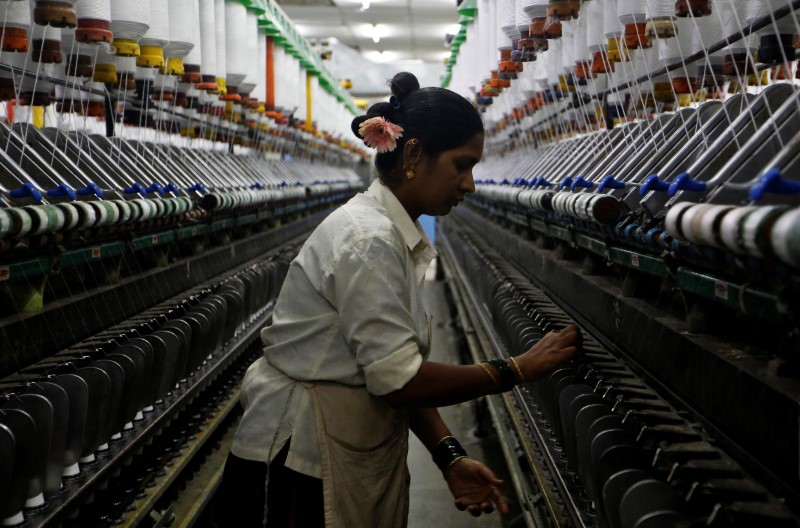By Rajendra Jadhav and Sudarshan Varadhan
NEW DELHI/MUMBAI (Reuters) - India doubled the import tax on more than 300 textile products to 20 percent on Tuesday as the world's biggest producer of cotton tries to curb rising imports from China.
It was the second tax hike on textiles in as many months after an increase on other products including fiber and apparels last month.
The moves are expected to provide relief to the domestic textile industry, which has been hit by cheaper imports. India's total textile imports jumped by 16 percent to a record $7 billion in the fiscal year to March 2018. Of this, about $3 billion were from China.
The government did not disclose details of the 328 textile products that will be subject to the duty increase announced on Tuesday.
Rising imports sent India's trade deficit with China in textile products to a record high $1.54 billion in 2017/18, alarming industry officials as India had been until recently a net exporter of textile products to China.
Sanjay Jain, president of the Confederation of Indian Textile Industry, told Reuters he did not expect China to retaliate to the Indian duty increases as it still has a trade surplus with India.
He said India's textile product imports could fall to $6 billion in 2018/19 as a result of the tax hike to 20 percent.
India's imports of textile products from Bangladesh, Vietnam and Cambodia also jumped in the last few years as they are not subject to any duty under free trade agreements (FTA) signed by India with these countries.
The 20 percent duty will not be applicable to products sourced from those countries due to the FTA, Jain said.
Industry officials say in the last few months Chinese fiber has been shipped to Bangladesh and processed and exported to India with zero duty.
"Rules of origin need to be implemented for textile products. Otherwise Chinese products will land from other countries," said a Mumbai-based garment exporter, who declined to be named.
Jain said India's textile and garment exports could rise 8 percent to $40 billion in 2018/19 due to a weak rupee and as the government is expected to introduce incentives to boost overseas sales.
India's trade differences with the United States have also been rising since President Donald Trump took office.

India, the world's biggest buyer of U.S. almonds, in June decided to raise import duties on almonds and some other U.S. imports by 20 percent, joining the European Union and China in retaliating against Trump's tariff hikes on steel and aluminum. The increased tariff on U.S. goods will be applicable from Sept. 18.